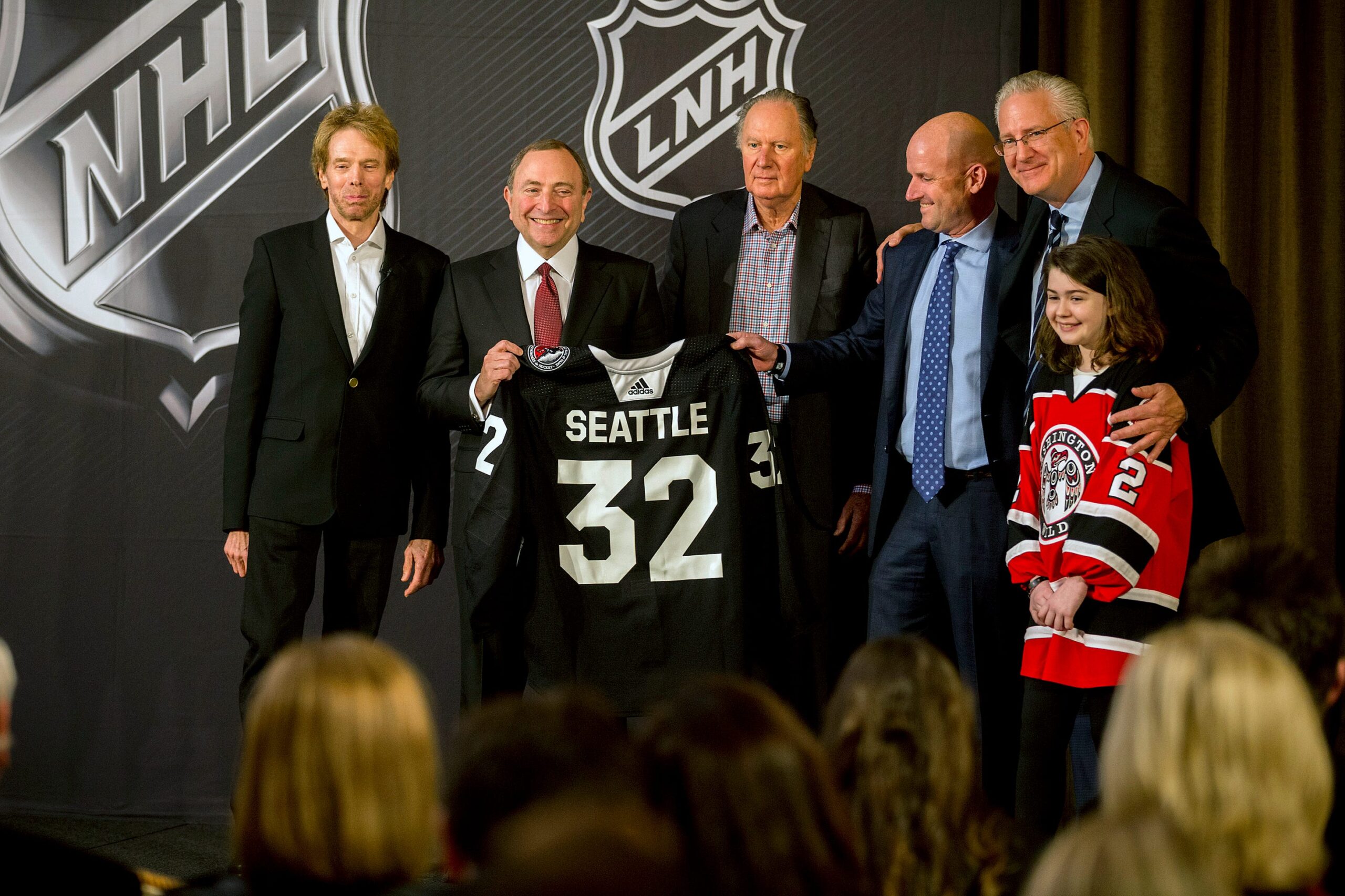
On December 4, 2018, the National Hockey League’s board of governors unanimously approved the birth of a new NHL franchise in Seattle, in what the New York Times labeled “one of the country’s wealthiest and fastest-growing cities.”
Indeed, the wave of new money has washed over the city, and with it has come the endless disdain of the “tech bros”, rent hikes, and gutting of all the quirks that used to define Seattle. Yes, the only thing constant in life is change, but few municipalities have seen their DNA altered at such light speed.
Ostensibly, the new ownership group that includes some heavy hitters from Los Angeles (i.e. Jerry Bruckheimer) saw what we all could: an economic boomtown that loves its sports. The Seahawks, Sounders, and even the Mariners continue to put butts in seats despite the rising costs of attending a game/match. There is no doubt that the city would have welcomed an NHL team long ago, especially given the buzz that Chris Hansen generated when he proposed bringing the NBA back to the city that would have also created space for an expansion hockey team [and the simultaneous sadness fans felt when the city failed to back his plan].
I went to the rallies that Hansen hosted, with the likes of Gary Payton, Macklemore, Shaun Alexander, and other notable Seattle figures. There was palpable excitement and energy at those events. Hansen’s plan was even endorsed by would-be neighbor Russell Wilson. But it was clear that the city favored another group’s plan, and any SoDo arena, if at all, would have to wait. As upset as longtime Seattleites were (myself included), the time has come to embrace the Oak View Group’s vision to renovate Key Arena and bring the NHL to Seattle.
There are a lot of reasons to support renovation of the Key[1]: it’s the home of two-time WNBA Champions, the Seattle Storm; it’s a multi-purpose venue that hosts NCAA basketball, concerts, and graduations; it’s historical (opened as the “Washington State Pavilion” for the Century 21 Exposition, which then became the Seattle Coliseum that hosted two NBA finals in 1978 and 1979, then was remodeled in 1994-1995 into the Key Arena to host another Finals between the Sonics and the Chicago Bulls). Furthermore, it’s walking distance from our South Lake Union tech overlords. All kidding aside, it makes sense to revitalize the Seattle Center.
Whenever I have a conversation about Seattle sports venues with people who aren’t from Seattle, they are always envious of how everything is situated in the center of the city. It’s true: Seattleites are fortunate compared to a lot of fans these days (looking at you, Arlington and Santa Clara), but these teams are equally fortunate to be supported by a city of fans, who ironically, are getting pushed farther away from our sporting venues each day by a rising cost of living that most wages cannot keep up with.
Which brings me to my point: the new NHL team needs to embrace the diversity of the city and not just those that are fortunate enough [anymore]to live and work around Key Arena. Despite the success of the Las Vegas Knights, once the team announced the actual cost for season tickets, many fans were forced to withdraw their commitment because they simply couldn’t afford the prices; those that could were threatened with cancellation if they didn’t resell their tickets through specific third-party sites(however, the impetus behind it was to dissuade investors who saw it as a business opportunity from driving up the costs of tickets to people who actually wanted to attend games – whether or not that has made tickets more affordable is up for debate).
CEO and President Tod Leiweke and his ownership group have already demonstrated that they want to embrace Seattle’s cultural history by consulting with indigenous people on logo development in a matter that celebrates, rather than steals or exploits Native American culture. The Group has also already teamed up with renowned public radio station KEXPto provide music at the games[2].
Despite the ownership group’s Los Angeles ties, I have faith that NHL and Seahawks alum Leiweke understands the complicated growing pains the city is experiencing, and will ensure that the team embraces Seattle, old and new.
[1]Less important reasons include: where I first saw Common perform and where I graduated from law school.
[2]No more Oasis, please.


